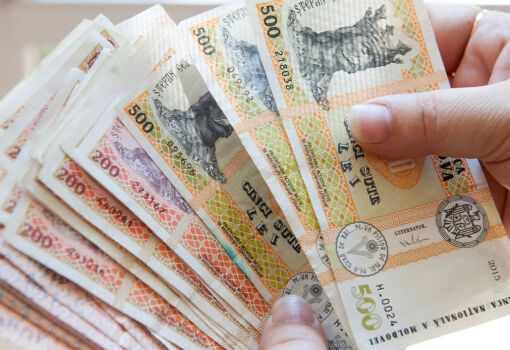
In the opinion of the Accounts Chamber, except for some aspects that served as a basis for formulating a qualified opinion, the consolidated financial statements of the Ministry are in order. And the “reservations” are quite serious. And what is most important – they are repeated from year to year, although there are recommendations to overcome distortions. SP auditors continue to identify them with the same frequency. And they mainly concern the accounting of financial flows, which are directed to support entrepreneurs.
Odes to ODA
The most serious “reservations” relate to business loans secured from the SME guarantee fund. SP auditors found misreporting of cash flows and balances as a result of loan activation and ODA functioning.
First, the auditors draw attention to the lack of specificity in the reporting on loans and grants to entrepreneurs, in particular, the balance at the end of the year of the budgetary financial resources of the Credit Guarantee Fund for Small and Medium Enterprises (CGF) in the amount of 401.9 million lei.
Also, the ministry did not recognize financial liabilities against the guarantees issued to the borrowers of the Fund. The guarantees and assets worth 1,134.1 million lei, issued to 1,599 entrepreneurs, were not included in the consolidated balance sheet of the Economy Ministry. Subsequently, they “disappeared” from the Ministry of Finance’s sight and were not included in the government’s report on the execution of the state budget in 2024. The SP notes that such a situation with “invisible” assistance to business is repeated annually, although the FGC is capitalized “at the expense of budget funds, and the guarantees issued may generate contingent liabilities that may have an impact on budget expenditures”.
The Organization for Business Development (ODA) wears roughly the same invisibility hat. “Under cover” were 5 million lei allocated for the capitalization of the FGC. According to the documents, they appeared under the heading “Current grants granted to public institutions for self-government” and were intended for the current expenses of the self-governing public institution.
As a result, the auditors say, this budgetary approach and the way the funds were transferred led to an increase in actual state budget expenditures in the form of current grants. In fact, no current expenditures were made. Instead, an asset (cost) was created that requires special accounting, different from the current expenditures of self-governed state agencies.
At the same time, the SP draws attention to the fact that part of the FGC’s financial resources were invested in government securities. This created a paradoxical situation where budgetary funds are used to finance the budget deficit! According to the information provided by ODA, as of 31.12.2024, the institution held funds in SS for a total amount of 286.5 million lei. Investment instruments purchased from the state budget funds brought to ODA an additional income of 19 million lei in 2024.
Due to the absence of an alternative source of financing, the Ministry of Economic Development and Digitalization and ODA did not make progress in the issue of collecting from the treasury accounts the financial means meant for the implementation of the Program “Digital Transformation of Small and Medium Enterprises” in the amount of 4,140.6 thousand lei. These amounts were irregularly used in previous years for the implementation of another program “Support for small and medium-sized enterprises in rural areas”. It is worth mentioning that in 2023, the working group created to study this issue proposed to ODA to ensure the return of the respective funds within a period of up to 5 years. At the same time, no timetable for their return was proposed, and the relevant decision was not approved by an internal act of the Ministry. As a result, the funds have not been returned to date.
Come on! It’s cheaper!
The auditors of the Accounts Chamber found other shortcomings that did not affect the audit report, but reflected the general state of administrative weakness of the ministry, which manages the economy and considerable resources. Permanent reorganization processes, “transfer” of assets do not have time to be reflected in time, because of which they are “lost” or depreciated along the way. These are lands, buildings, other assets that were incorrectly and wrongly accounted for by someone, not registered or…. accidentally forgotten in the hustle and bustle of management days.
This is what happens, for example, with non-financial assets transferred to economic management. It has been established that for several years there has been no inventory of state assets of public domain managed by free economic zones, free enterprise zones and industrial parks. For this reason, their assets are not valued and accounted for neither in the Ministry of Economy nor in the Public Property Agency.
For example, there are 3 buildings/structures with a total area of 9,009.28 m2 managed only by the Administration of the Free Economic Zones “Taraclia Industrial Park”, which, according to the provisions of the legislation, are part of the state property in public use. The complex of buildings is not accounted for anywhere. The Court of Accounts insists on an urgent inventory of all assets managed by all FEZs and FTAs.
Other examples of negligent attitude towards state property described by the Court of Accounts concern the transfer of non-financial assets to the management of the Public Property Agency and other state institutions for amounts exceeding tens and hundreds of millions of lei.
The National Institute of Metrology, the Organization for the Development of Entrepreneurship and the state enterprise Radio Communications are on the list of “dependents”. As for the latter, during the audit mission, the Ministry of Economy recognized the classification of budgetary allocations as erroneous.
Last year, the State Enterprise “Radio Communications” was allocated funds to ensure the provision of a multiplex of digital terrestrial television and radio broadcasting with national coverage for more than 98% of the Moldovan population. The funds were misclassified, which led to an underestimation of the subsidies granted to the state enterprises by 25 million lei.
As a result, the state does not have comprehensive information about all its assets and their real value. Moreover, the valuation of state property in many cases is reflected in the accounting records as a symbolic figure, without an updated market price.
The Ministry of Health “did not warn”
The auditors of the JV found out that during nine public procurement procedures carried out in 2024, the National Agency for Public Health (ANPH) played into the hands of private laboratories and the state lost possible revenues of MDL 4.1 million.
The NPAH rejected the bids of the public service providers. They were not satisfied with the prices, which were 13-65% higher than those of private laboratories. According to the “best price” criterion, the proposals were considered economically disadvantageous because they were evaluated within the tariffs mandatory for health and wellness service providers in the public sector, but not in the private sector.
As a result of “reverse dumping”, representatives of the private sector were able to enter into service contracts with public institutions (SMEs, etc.) at prices lower than those established by regulations. According to the auditors, this situation provoked unfair competition, and “these circumstances pose risks to the quality of medical and health care services provided, as well as to aspects related to patient safety and health”.
The joint order of the Ministry of Health and the National Institute of Health on approval of tariffs for medical services rendered in 2024 (No. 1197/329-A of 27.12.2023) does not comply with the normative acts in force in terms of form and content. As the auditors found out, the norms are not linked to legislative acts, and the respective document was issued without direct delegation of authority from the Government and with violation of the norms on transparency, contrary to the provisions of the legislation. Consequently, the order had no legal force and is invalid.
The tariffs approved by such an order are not contained in the Catalog of Uniform Tariffs and are not regulated by a normative act in accordance with the needs of financing the healthcare sector, the JV report said. “The procedure for concluding contracts for the provision of medical services under the MHI, including inpatient and high efficiency, is made on the basis of tariffs agreed with providers, and without exceeding the tariffs approved by the Government and the cost of medical services that is provided for by regulations,” the SP notes. In the same context, the contracting criteria establish the mandatory application of the base tariff when concluding contracts for the provision of medical services.
It was found that under these conditions, the mandatory health insurance funds amounting to 7,339.5 million lei were managed in 2024. Moreover, the contracting of medical services under the Special Program “Operative treatment of cataract” in the period from January to June 2024 was performed for the district hospitals of Causeni, Floresti and Vulcanesti at tariffs increased by 2.26% and 3.91% compared to the tariffs approved by a joint order of the Ministry of Health and the National Institute of Health. This resulted in additional and unjustified allocation of financial resources from the funds of insurance medicine.

